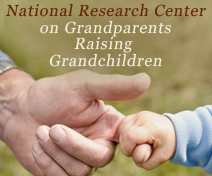ScholarWorks > Institutes & Centers > Grandparents Raising Grandchildren > GrandFamilies > Vol. 4 > Iss. 2 (2017)
Abstract
Abstract
The predominance of research on custodial grandparent caregiving focuses on prevalence, risk factors, and challenges; less attention has been paid to the development of interventions to support this population. In response to a decrease in length of service provision at a local agency, a 9-session self-care curriculum was designed to focus on caregiver health through the empowering, multi-dimensional practice of self-care. The curriculum uses a mind-body approach and was integrated into a pre-existing 9-month support program for grandparents raising grandchildren. Using a basic, interpretive qualitative design, the purpose of this study was to explore how grandparent caregivers: 1) understand and practice self-care in their lives and 2) experienced self-care curriculum introduced within a pre-existing support group. Data were collected though qualitative interviews and analyzed concurrently using basic thematic analysis; techniques used included open and focused coding, cross-checking, and memoing. Study findings reveal self-care was most often understood in terms of physical health, caregiving brought meaning and purpose, and preferred self-care activities focused on introspection, solitude, and spirituality. Participants reported the curriculum was helpful, citing benefits such as present-moment awareness, relaxation, and connection. Implications for practice and future research are included.
Recommended Citation
Lee, J. J.,
Kolomer, S. R.
(2017). “If I Don’t Take Care of Myself, I Can’t Take Care of Them:” Exploring Caregiving Grandmothers’ Experiences of a 9-Session Self-Care Curriculum. GrandFamilies: The Contemporary Journal of Research, Practice and Policy, 4 (2).
DOI: https://doi.org/10.15453/3067-3674.1054
Available at: https://scholarworks.wmich.edu/grandfamilies/vol4/iss2/6
